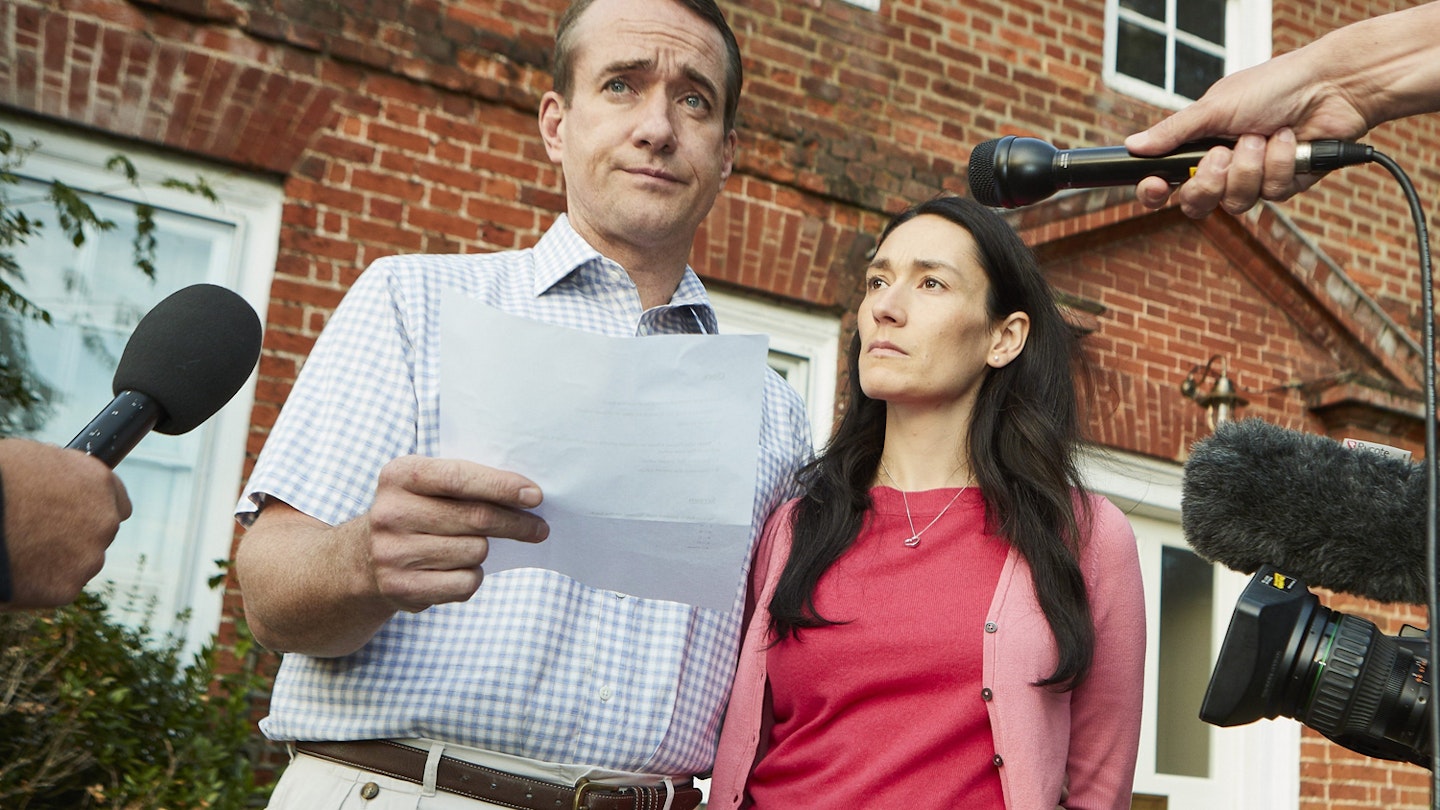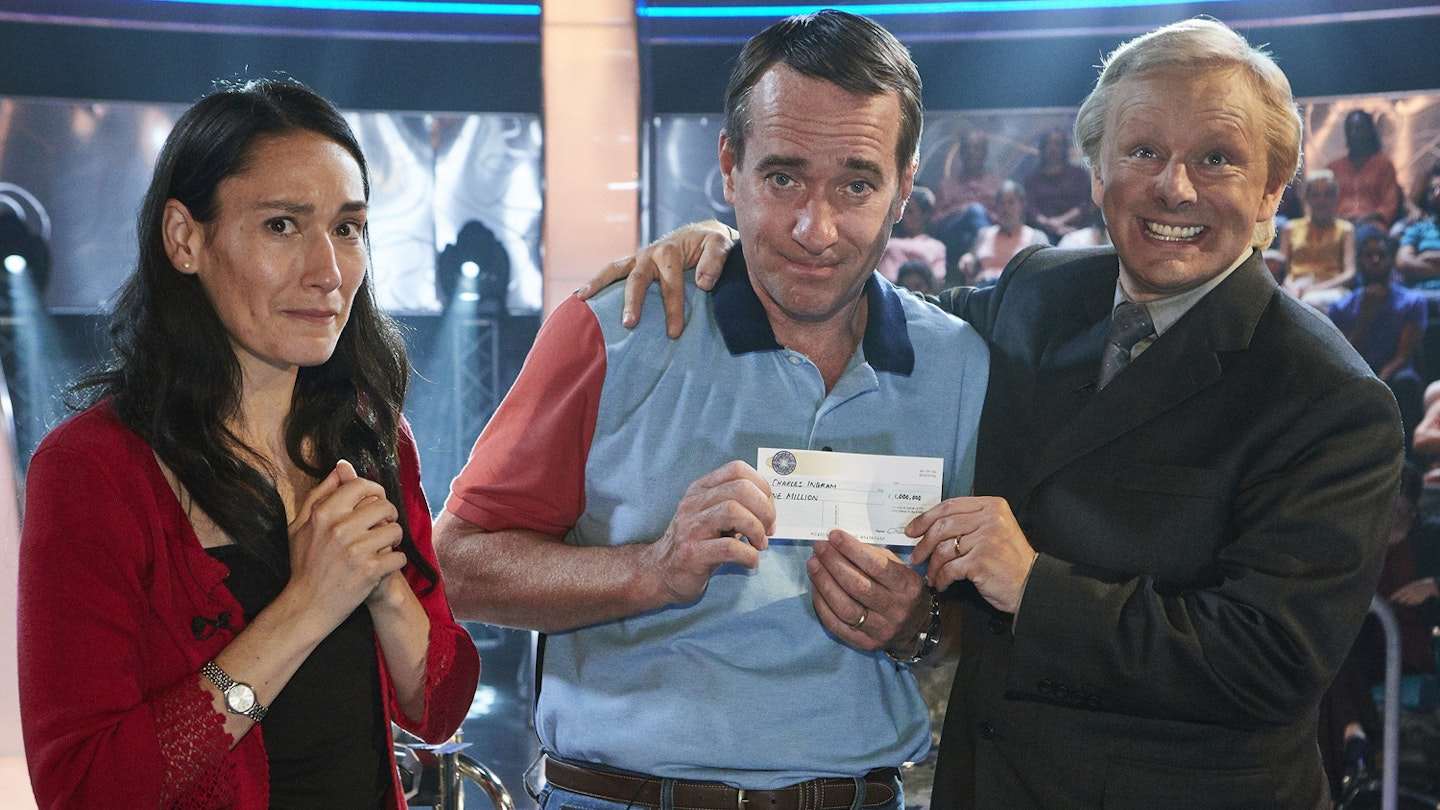For such a televisual staple, there’s something oddly cinematic about Who Wants To Be A Millionaire?. It’s the sheer drama of it, the tension of every question that takes the contestants ever closer to that seven-figure jackpot – every new potential victory becoming its own thriller set-piece. If Danny Boyle milked it to great effect in Slumdog Millionaire, now it’s the turn of fellow Brit director Stephen Frears, adapting the infamous ‘coughing major’ scandal into Quiz, a three-part ITV drama.
The addictive suspense of the quiz format itself is partly the focus on the opening instalment, depicting the origins of the game. Just how did a British network come up with one of the most stripped-back, compulsively-watchable gameshow formats ever devised? There’s an electricity to seeing it all come together, even before the second episode finds Major Charles Ingram (Matthew Macfadyen) sat across from Chris Tarrant (an uncanny Michael Sheen) in the hotseat. From the recreation of the original Millionaire set, to the formation of the secret underground ‘Syndicate’ of hardcore-quizzers, to Ingram’s homemade Fastest Finger First simulator, there’s a lightness to the simultaneously high and low stakes of this most British of TV scandals (Frears, fittingly, also helmed 2018’s A Very English Scandal).

As for the recreation of that famed Millionaire episode, it’s brilliantly done. Writer James Graham, adapting his own 2017 stage play, largely lets the bizarre facts do the talking, quoting verbatim from Ingram’s seemingly miraculous (or downright suspicious) win. How does a man go from saying he’s never heard of Craig David to then pull a complete 180 and stake thousands of pounds on that answer? Beyond simply relaying the confounding realities of the episode, Graham peppers in extra moreish behind-the-scenes details – notably the ‘glitter man’, the person in charge of releasing the in-studio confetti on the very rare occurrence of a million-pound winner, forced to make a quick dash to the studio just when it seems Ingram might actually win.
Graham’s screenplay reveals a modern parable – one where a quiz show all about finding definitive, factual answers became the stage for an event in which there is no objective truth.
For all the energy and excitement of the first two episodes, it’s in the final instalment that Quiz really crystallises into something great. In recreating the court case that unfolded over the eligibility of Ingram’s win, Graham’s screenplay shifts gear to reveal a modern parable – one where a quiz show all about finding definitive, factual answers somehow became the stage for a deeply improbable event in which there is no objective truth, just opposing narratives trying to make sense of it all with a million pounds (and a whole lot more) hanging in the balance. If the writing here becomes more overtly stagey, it feels fitting – drawing attention to the fact that what we’re watching is also not objective fact, but a narrative construct using an infamous showbiz scandal for reflection and entertainment.
By invoking trials by media and nodding to the rise of public shaming in the last remaining pre-social media years, Quiz makes a near-20-year-old story truly topical. Whether Ingram and his supposed co-conspirators really cheated or not – and the drama itself provides equal weighting to both arguments – the series asks the audience, does it really matter when the whole world decided that he had? The greatest strength of Quiz is that, for once, there is no final answer.
